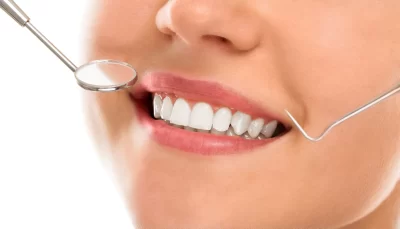Healthy gums are important for your overall health. Healthy gums support your teeth and help keep them strong. They also play an important role in fighting disease by helping to fight off bacteria and viruses that can cause infections. Keeping your gums healthy is easy when you know what you need to do.
If you’re working with a dentist or need to take dental impressions at home for a custom mouthguard or retainer, it’s helpful to learn how to take them properly. Check out this guide from My DDS Supply on how to take alginate impressions for step-by-step instructions.
Take care of your gums
To have healthy gums, you should:
- Brush your teeth twice a day. Use a soft-bristled brush and gently brush the outer and inner sides of your teeth as well as the chewing surfaces.
- Floss daily. Flossing helps remove plaque from between the teeth where it’s not easily removed by brushing alone. If you are unable to use floss, you may use other tools such as interdental brushes or dental tape instead.
- Use mouthwash after every brushing or at least twice daily to help kill bacteria that cause gum disease and cavities if you are over 12 years old (younger children should be supervised by an adult with rinsing instruction).
Use the right toothbrush
Choose a soft-bristle brush. Hard bristles can wear away at your gums, which can lead to bleeding or infection. Look for one with a small head; this makes it easier to brush the back molars, where plaque tends to hide out.
Change your toothbrush every three months or so; as you use it more often, its effectiveness begins to fade as the bristles become worn down and bent out of shape. It’s also important to replace your toothbrush on a regular basis because bacteria will accumulate on it over time—and if you’re using someone else’s toothbrush (or vice versa), there might be germs from their mouth getting onto yours!
Brush your teeth twice a day
Brushing your teeth twice a day is one of the most important things you can do for gum health. But it’s not enough to just brush—you have to brush properly. You want to make sure that you’re brushing all the surfaces of each tooth and doing so for at least 2 minutes.
Flossing helps get rid of food particles that are stuck between your teeth that normal brushing doesn’t necessarily reach.
If you’re worried about bad breath or staining from using mouthwash, consider switching from store-bought varieties (with alcohol) or those with high fluoride content for an all natural alternative, which contains no alcohol but does contain tea tree oil and eucalyptus oil as natural anti-bacterials against plaque and bacteria buildup on your gums—and fresh breath!
Flossing
Flossing your teeth is an essential part of taking care of your oral health. It removes plaque, which can build up between the teeth and cause gum disease.
Flossing is one of the most effective ways to clean between your teeth, where traditional brushing and toothpaste often miss. But many people avoid flossing because it can be painful or uncomfortable if you’re not doing it right.
If you’re new to flossing, start slowly by using a piece of dental tape (not waxed) or another type of floss with a wider surface area than regular string floss. You may also want to use a water jet device that sprays out water under pressure to help clean between your teeth and remove debris from the gums.
See your dentist regularly
See good dentist from St Leonards regularly for professional cleaning and checkups, which will help catch problems early on before they become serious. A professional cleaning will remove plaque and tartar buildup, while regular checkups allow your dentist to monitor any changes in your mouth over time.
Use fluoride toothpaste
Using fluoride toothpaste is a must for those who want to have healthier gums. Fluoride helps prevent cavities and promotes dental health in general. It also helps prevent gum disease, which can lead to severe health problems if left untreated. If you have sensitive teeth or gums, then you should speak with your dentist about using a non-fluoride version of toothpaste instead. However, most people don’t need this extra precaution because the amount of fluoride in regular toothpaste is usually just right for keeping your mouth healthy overall.
Don’t over-use mouthwash
Don’t over-use mouthwash. Mouthwash is not a substitute for brushing your teeth, and it should only be used when necessary, such as right before a meal. Excessive use of mouthwash can lead to dry mouth and other issues that may result in more tooth decay.
We hope our tips have been helpful for you. A healthy and beautiful smile will have a direct impact on your mental health! Just remember that taking care of your teeth and gums is one of the best things you can do to stay healthy! It’s not always easy to keep up with, but it’s worth it in the end when they’re in good shape. So now go ahead and get started on your new oral hygiene routine!
*Featured Inage Source












